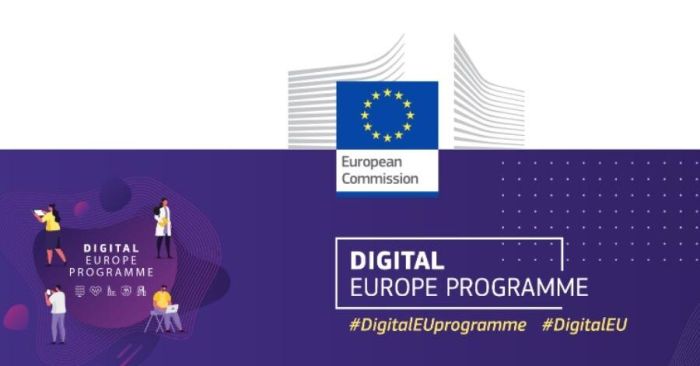
EU Commission invests 1.3 billion euros in AI, cybersecurity and digital education – a boost for research and development
Generative AI: applications, data spaces, testbeds
One focus is on the further development and practical application of generative AI, including in sensitive areas such as health and care. Funding will be provided for energy-efficient data spaces, immersive simulation environments ('virtual worlds') and the technical implementation of the AI-Act. The goal is the AI Factories Initiative, which aims to accelerate research and application of generative models in Europe.
Strengthening the scientific infrastructure: EDIHs and education
A significant part of the funding will go to the European Digital Innovation Hubs (EDIHs). These will provide research organisations and businesses with access to high-tech infrastructure, test-beds, training and consultancy services.
In addition, digital education in the EU will be significantly strengthened. Universities and research institutes will systematically train digital talent - from basic skills to specialised AI research.
Cyber resilience: Protecting critical infrastructure
Cybersecurity research will also benefit. Investments will be made in preventive systems, such as the EU Cyber Security Reserve, to make critical infrastructure such as health systems, networks and undersea cables more resilient.
Data models for the planet: ‘Destination Earth’
Another flagship project: Destination Earth. It aims to create a high-resolution digital twin of the Earth to support climate adaptation and disaster management with data. Researchers will have direct access to modelling and analysis tools.
New quality label for R&D projects: STEP
The ‘Strategic Technologies for Europe Platform (STEP)’ is the first quality label for forward-looking technology projects. The STEP label improves the chances of obtaining national and European funding, including for interdisciplinary research projects.
Timetable: Calls for proposals to be launched in April
The first DIGITAL calls for proposals are expected to be launched in April 2025. Scientific institutions, companies and administrations from EU Member States, EEA countries and associated third countries are eligible to participate. Calls for proposals will be published on the EU funding portal. Further information can be found here.





